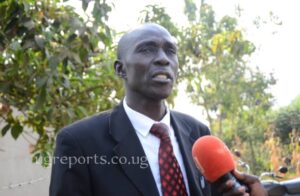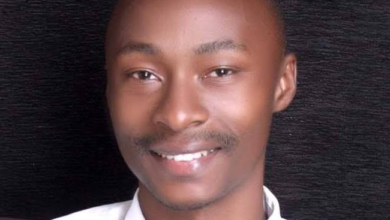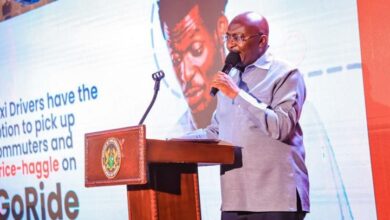High heat waves are a death trap for farmers

Op-Ed: The current high heat waves and the unexpectedly hot sunshine we are experiencing these days in a known wet season are a clear example of climate change.
I’m only writing to talk about the talks other writers have written about from the perspective of grassroots farmers; this is death.
https://www.cryptoandforexvipsignals.com/
I live in a community of purely peasants who entirely rely on their crops and animals for food, and their surplus is sold for school fees, accessing medical care services, and clothing, among others.
These are basically raised locally on the natural sources of water like rainwater and grass that grow well in wet and fertile lands. The sunshine is as hot as fire at a time when we expect rainfall for our crops and animals to do well. We definitely have no hope for a good harvest.
We suffered last planting season during the harvesting time where there was too much rainfall and crops got rotten. We saved very few seeds that are not even enough to feed us and plant this time. We have again thrown the few seeds saved on the “bare rocks” and this “hell of hot fire that came up shortly after the onset of rain, early this month.
Our maize and beans were just emerging from the soil, and then the climate bomb of very high heat waves and hot sunshine landed on them. The maize leaves are narrow and look like threads for sewing cloth, and the bean leaves coil up as early as 11:00 a.m. in our area, Buseruka Subcounty. There are increasing worries among the local people about famine.
Whenever we look at our crop gardens, we regret why we planted, and yet we are now going hungry because of the beans we sacrificed to plant as early as March 1, 2024, hoping to harvest early to compensate for the losses realized the previous season, but now they are drying up as soon as they emerge from the grounds; others have failed to even germinate and are rotting in the soil.
“What can we do?”. The grassroot peasants have become too lazy to work in the garden, yet they are supposed to eat what they don’t have. This clearly affirms food scarcity and insecurity, and hence poor living conditions.
“We have nothing to do. We are lazy, redundant, idle, and hungry because the sector that employs us is not manageable by our favorable, cheap, and limited agricultural practices and knowledge we inherited from our ancestors (our grandparents).
The practice and knowledge of keeping harvests and early planting are not working today because too much rainfall makes the crops rot in the garden, and you save very little, which is not even enough for home consumption.
Here comes a very critical and challenging situation of unpredictable rainfall patterns for which we are suffering today. We thought planting at just the onset of the rain was a solution, but it has turned into a suicidal act. We are killing ourselves by burying the seeds in the soil as we try to adapt to climate change.
This so far, a very short happening of high heat waves and very hot sunshine has clearly brought out the food insecurity. People are living without being sure of what to eat the next day. It is so heartbreaking to hear an old woman say, “I slept hungry, and I am not sure of what to even eat today” in the morning hours. Not only do children beg for food but also old people within a matter of less than a month, yet food crops are even cheaper.
For example, last year in November,a basin of dried cassava was at around thirty thousand Ugandan shillings (30,000 ugx), a cup of beans was at around two thousand Ugandan shillings (2000 ugx), and a kilogram of maize was at around one thousand Ugandan shillings (1000 ugx), but today the prices have greatly lowered to 10,000 ugx, 1000 ugx, and 500 ugx, respectively. We imagine if the prices kept constant or were increased, many people would have died of starvation because the spirit of community sharing of things like food that our grandparents used to show for people who lacked something is no longer there because of changes in the demands of people to gain riches, changes in the climatic conditions that leave people without any hope of harvesting in the next season, and general development that has led to monetization of all things. We literally care less about others; if you have no food, you may go hungry in most communities today because of the impacts of climate change that have made people selfish.
Increased school dropout is another indicator of the impacts realized from this climate change. Having had discussions with our parents who have children at school, these parents think those in primary schools are meant for only universal primary education (for free studies), forgetting that there are very many children to buy books and uniforms, and most parents cannot afford this.
They are now sending very few children to school, thus increasing school dropouts because parents can no longer get the surplus of their crops or animals to sell since feeding alone is a problem due to prolonged droughts like this month, characterized by a very high temperature.
There are a lot of complaints about headaches, and people have attributed this headache to too much heat and very hot sunshine. People are now afraid to walk or work in the sunshine. “When you walk in the sunshine these days, you start to pant like a dog.” Said an old man sitting under a jackfruit tree.
Water shortages due to this calamity “hell on earth” have proven to be more destructive. An old woman said, “I have spent five days without bathing because no one allows me to move under the hot sunshine to bring me water.
The little water my neighbors give me, I would rather use it to cook food and eat than bathe.” I wouldn’t imagine how this grandmother manages the heat without a drop of water on her skin. Some of us move longer distances (about 5km) on foot in search of water from streams for washing clothes, bathing, cooking, etc.
Some youth do “Leja-Leja,” a local word meaning doing causal work for pay, and after getting paid, they buy a jerrican of water at five hundred shillings from a Boda-Boda person in fear of the hot sunshine.
The community people and women who provide food are scared of losing their vegetables seeds due to these kinds of climatic fluctuations, and they recommend the establishment of locally friendly seed banks to save their crop seeds. They call upon the government and her responsible agencies, civil society organizations, NGOs, CBOs, and all stakeholders to work jointly and come up with communal seed banks.
Food security will only be managed by planting long-lasting crops like cassava, sugarcane, bananas, fruit trees, and others. The seasonal cash or food crops are becoming very hard to manage because of the lack of knowledge to predict climatic changes.
Therefore, the grassroots people are calling upon the establishment of tools such as apps or sensing devices at grassroots levels to aid their prediction of the weather or climate patterns. This is because natural indicators such as the movement of butterflies, birds, and others do not work today.
I also recommend that hands-on skilling opportunities be availed of and extended to more people so that we reduce dependency on only rain-fed agriculture, which, when not favored, leaves very many people idle.
These hands-on trainings can include modern agriculture with irrigation skills and entrepreneurship training to enable business-oriented youth or women to invent and innovate goods or services to meet their demands, among others. This will create more income sources to enable the payment of school fees and the provision of basic needs such as food and health care services, among others.
I also suggest that natural water sources like streams should be kept clean and respected, for they are the lifeblood of not only human beings but also other animals and plants. Without water, man cannot live, and plants dry up. I call upon all individuals to act for safe and clean water in their communities. The government, NGOs, CSOs, CBOs, and community members develop good policies to govern the use of water resources.
Today, everyone is a victim of climate change impacts, regardless of the place you live, the food you eat, the school you go to, or whatever you do. To achieve climate justice, we need to work as a team, include everyone in climate action, and be humble and empathetic when taking action. The most powerful resources most of us need to sacrifice are time and energy to talk.
Do an action that counts. Decide to spend a day without causing any pollution, plant a tree and nurture it to grow, and post a message calling on other people to act. If we all decide to start acting locally for global impacts, we will achieve the climate justice we all deserve.
https://www.cryptoandforexvipsignals.com/
The author is Emmanuel Ongyeer, program coordinator at Nature Talk Africa (NATA).
Disclaimer: As UG Reports Media LTD, we welcome any opinion from anyone if it’s constructive for the development of Uganda. All the expressions and opinions in this write-up are not those of UG Reports Media Ltd. but of the author of the article.
Would you like to share your opinion with us? Please send it to this email: theugreports@gmail.com.






